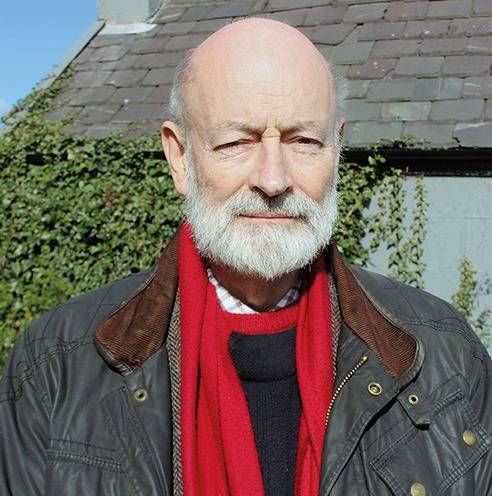So someone buttonholes me - or you -and asks: "You humanists live fuller, richer lives, do you? Fulfill your human potential? If I became a humanist, just hypothetically you understand, I mean I'm not planning to or anything, but if I did, I mean, would it cheer me up?" Humanists have already met the philosophical challenges set by religion. They know that morality and meaning do not require God. But where's the juice? Rationalist argument alone gets boring. To build a good society you need vibrant connections. Where's the sensuous, the spiritual, the feeling, the awe and joy in being a humanist?
We are a tribal species. We need communal rituals, songs to sing together, not alone in our rooms. We need ways to care for each other, inspire each other, develop ethics and teach them to our children, through stories, plays, rituals, dances, and music. Yes, you can find all these things in separate places - museums, theatre, evening classes. Why not in a single, humanist place?
In the 19th century some humanists started functional alternatives to religion. Ethical culture societies were founded. Why did they not thrive, as churches do?
Was it because an overly rational approach to life can be cool, even chilly; dry, and narrowly dismissive of metaphor, story, ritual; judgmental in a superior moralistic way to all those benighted beings who are still stuck in their irrational modes? I want my agnostic religion to be warm, juicy, broad, and celebratory.
It was having a kid that made me realise I wanted a community. In our rural American backwater, Christian radio has the strongest signal and we heard troubling tales of homophobic, racist, anti-Semitic attitudes at the local school. Where were we going to find a youth group of like-minded humanistic liberals? We found a Unitarian Universalist (UU) congregation. Highly suspicious and group-phobic, I was surprised to find I liked it for myself. There's a mixture of belief and non-belief there, but no creedal litmus test for membership.
Religion can add much to the purely rational without becoming irrational. For example, a scientific approach on its own will teach you there is no sharp disconnect between humans and the rest of life. But that understanding may not change or deepen your life unless you let it seep into your bones. You might meditate on it, immerse yourself in nature, feel your connection to other living beings, create rituals and songs, experience awe and gratitude, humility, joy, despair, or power in face of the mystery of life.
Even atheists may call these experiences 'spiritual' since spirit can just mean 'breath'. 'Religion' just means organising it. Make up new words if you insist.
Perhaps secular religion is only likely to develop in societies like the US, where god-religion is strong and even sceptics know the value of a good congregation: they just want it god-free or god-optional. But in atomised modern England where, as in the US, commerce is strong, money corrupts politics and the left has lost its way, how do you build up ethical communities? And how do you avoid them ending up just as dogmatic and overbearing as any church?
Fear not. Groups do not inevitably become cults, or take away your individuality. They say that if you want to run a Unitarian Universalist family out of your neighbourhood, you burn a question mark on their front lawn. Doubt itself can be sacred.
But doubt can't be all that is sacred or we'd be so doubtful we couldn't get up in the morning. A humanistic religion informed by science, like the Ethical Culture movement or the Unitarians, is glued together by ethical values and a shared sense of wonder at being alive at all in such a universe as this. These groups can provide many of the functions of a useful religion: ethical teaching and practice; mutual help; social and political action; shared rituals for life passages and regular inspiration; shared meals, art, poetry, song, and meditation; small groups for psychological support and philosophical investigation; and all within one community so that connections between individuals become ever deeper and more multi-faceted.
This is one way. I am not saying humanism should be this, only that it's one way to try it.
Read AC Grayling's response ...just what we could do without.

